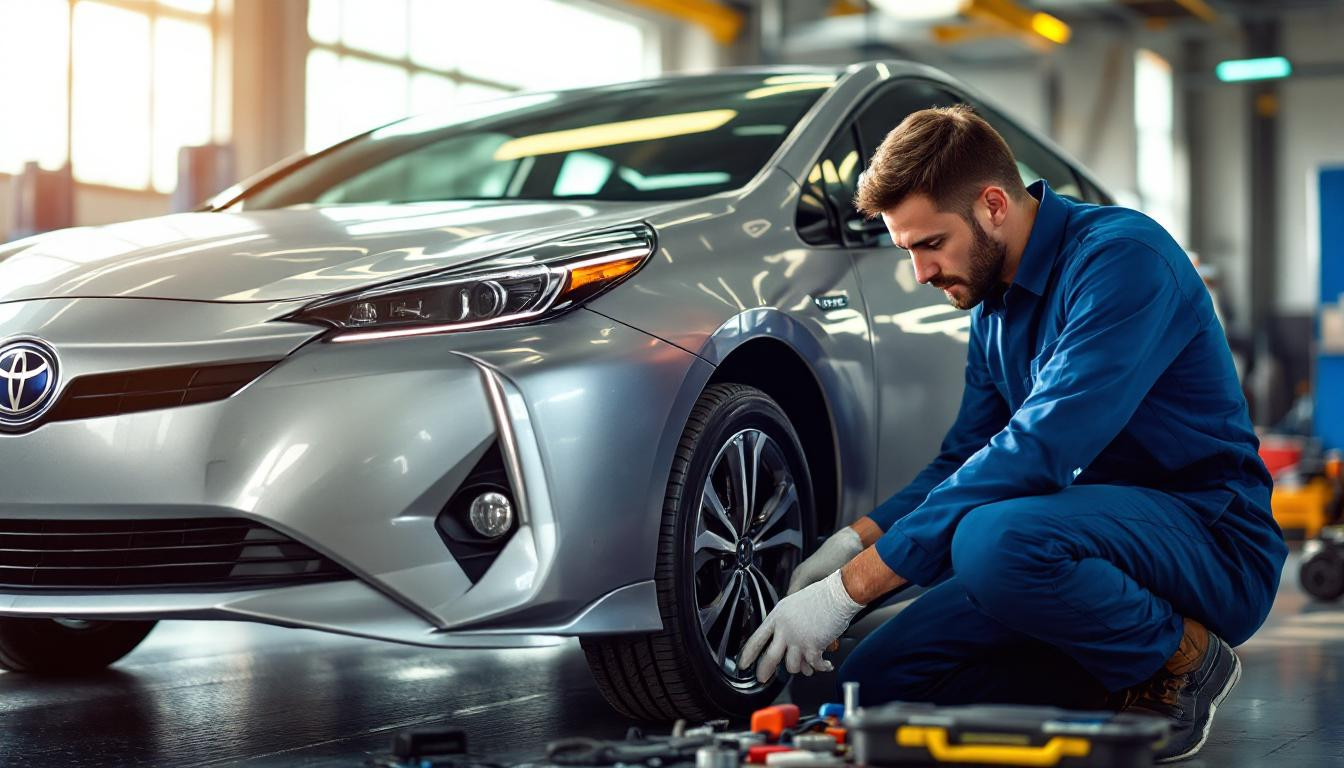As Spring 2025 heats up, hybrid vehicles continue their steady growth in the market, but one question persists among prospective buyers: what happens when that expensive battery pack eventually fails? With hybrid vehicles now entering their third decade on American roads, understanding battery longevity and replacement options has never been more important.
The real lifespan of hybrid batteries
Modern hybrid batteries typically last between 8-15 years or 100,000-200,000 miles, depending on various factors. “The aging of materials affects battery life, but the frequency of discharge cycles is actually the biggest factor in determining longevity,” explains Dr. Sarah Chen, automotive battery specialist at MIT.
Toyota, the market leader in hybrid technology, has seen many of its vehicles exceed these estimates. “We regularly see Prius models reaching 300,000 miles on their original battery packs when properly maintained,” notes James Rodriguez, senior technician at Toyota’s hybrid development center.
Warning signs your hybrid battery is failing
Before complete failure, hybrid batteries typically exhibit several symptoms:
- Significant decrease in fuel economy
- More frequent engine running with less electric-only operation
- Dashboard warning lights or battery-related error codes
- Erratic state-of-charge indicators
Replacement costs broken down
The financial impact of battery replacement varies dramatically by model and approach. New OEM batteries typically cost between $2,000-$8,000 installed, with luxury models commanding even higher prices.
However, the market has evolved significantly. “Today’s replacement options are like comparing a gourmet meal to fast food – various price points with different quality levels to match your specific needs,” explains Michael Torres, founder of EV Battery Solutions.
Emerging alternatives to full replacement
Third-party solutions have revolutionized the hybrid battery market. Refurbished batteries typically cost 40-60% less than new OEM units, while carrying warranties of 1-3 years. Cell-level repairs have also become viable, sometimes saving owners thousands.
This approach is gaining traction with environmentally-conscious drivers who appreciate that “electric range concerns affect all electrified vehicles,” not just pure EVs.
The recycling revolution
Spring 2025 has seen significant advances in hybrid battery recycling. Unlike the challenges facing Tesla and other EV manufacturers, hybrid batteries have established recycling channels.
Approximately 98% of hybrid battery materials can now be recovered through specialized recycling processes. These materials – including valuable nickel, cobalt, and lithium – are increasingly being reintegrated into new battery production.
Spring maintenance tips to extend battery life
Just as sports cars require seasonal care, hybrid batteries benefit from springtime attention:
- Schedule battery health diagnostics as temperatures rise
- Clean battery cooling vents to prevent overheating
- Address any error codes promptly before summer heat stress
Financial planning for replacement
Savvy owners are treating battery replacement like any other major vehicle maintenance. “Small business owners using hybrids commercially should budget approximately $100-150 per month for eventual battery replacement,” recommends financial planner Andrea Lewis.
This approach turns a potentially alarming $4,000 surprise into manageable financial planning, similar to how we prepare for other predictable vehicle expenses.
Looking ahead: The future of hybrid battery technology
While some electric vehicles face market challenges, hybrid technology continues steady improvement. Next-generation solid-state batteries promise double the lifespan of current lithium-ion technology while reducing fire risk and improving cold-weather performance.
Will these advancements finally eliminate battery replacement concerns? While complete elimination seems unlikely, extending useful life to 20+ years would effectively match most vehicles’ overall lifespan, making hybrid battery replacement a far less common consideration for tomorrow’s drivers.
